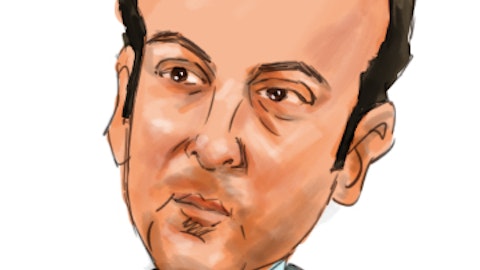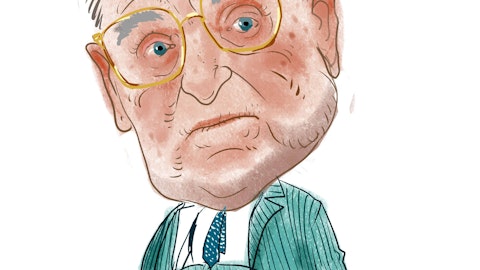At the beginning of the year 2012, the saying of “Short China” sounded again during the worldwide economy downturn. The well-known “Short China” investor Jim Chanos said Standard & Poor and other rating agencies had made a big mistake of being too optimistic about China. And Chanos will continue to vigorously short China-related companies and assets. Meanwhile, “Dr. Doom” Marc Faber, who was famous for his prophecy of the stock market crash in 1987, claimed that the economic downtrend in China is very apparent – may even be a “hard landing”.
However, “Short China” is not the mainstream in the global market. Stephen Roach, who serves as the non-executive chairman of Morgan Stanley Asia, said Chanos and other “short China” investors should personally go to China and take a look around before they draw their conclusions. While Jim Rogers said Faber didn’t fully understand China’s economy. HSBC, Goldman Sachs and other institutions also believe that China’s economy is likely to be a “soft landing”.
Jim Chanos vs. Stephen Roach
The well-known hedge fund manager Jim Chanos keeps his high profile on “Short China” recent years. Last month, Chanos said he could not understand Standard & Poor’s outlook in China. This was after Standard & Poor remained Chinese government’s “AA-/A-1+” sovereign credit rating while issued a warning to 15 members in euro zone.
Chanos said Standard & Poor and other rating agencies should be more “tough” regarding China’s economy. He previously predicted that the new home sales in China would drop about 40%, and this has begun to come true. Chanos is shorting mining and construction companies which export raw materials to China, and is also bearish about some Chinese banks. He is shorting any forms of institution and individual that are engaged in the real estate industry in China.
Stephen Roach, the non-executive chairman of Morgan Stanley Asia, argued against Jim Chanos’ view.
Roach gives his explanation regarding Chanos’ saying that the Chinese banking system is very fragile. He said that China’s banking system is the core of the intermediation in the credit process. The system is responsible for stimulating the economy after the financial crisis in 2008. And now the government is dealing with some related credit quality problems.
Roach believes Chanos exaggerated the concerns about the bad debt in China’s banking system. He said China’s banking system has ampler liquidity than people can imagine due to its huge deposit base. Now the ratio of loan and deposit is 65% in China. Before the financial crisis, this ratio was often as high as 120% or 130% in some banks, and great problems came from them.
So overall, Roach believes there is no factual reason to say China’s banking system is near brink.
Marc Faber vs. Jim Rogers
“China’s economy consists of many areas, I think some of these areas may shrink.” Marc Faber said in an interview, “I think China’s growth will slow down or even become stagnant.”
Faber explained that China’s economy mainly depends on capital expenditure, which may be more volatile and have a strong multiplier effect to the macro-economy. Faber said that the European recession could lead to a 1% to 2% negative growth, but the shrink of China’s economy will lead to an even worse impact in the world.
The commodity markets will be the first under the plunge during the slowdown. “10%, 5%, or zero economic growth will have significantly different effects to the iron ore, copper, and nickel price.” said Faber. Meanwhile, the hard landing for China’s economy may cause “catastrophic blow” to the global economy through the resource-producing countries such as Brazil, Australia, the Middle East and Africa.
Jim Rogers, who used to be George Soros’ partner, believes Faber’s pessimistic view of the Chinese economy is wrong.
“Mark has not fully penetrated China. Yes, in the next few years we will see a lot of hard landing in the case,” said Rogers, “but compared to Greece, the United States, and some other countries, the landing of China’s economy will be much softer.”
In Rogers’ view, there may be some so-called “hard landing” in some areas, but the other areas will be strong. He believes the commodity market will be in adjustment, and doesn’t agree about the “catastrophic blow”.
“The bull market in commodities will be consolidated, just like all the other markets.” Rogers said, “In 1987, the stock market fell 40% to 80%, but the long-term bull market didn’t end.”
Rogers is still bullish about commodities. He said that gold rose 600% in the 1970s, and then dropped back 50%. Many people were frightened, but gold jumped another 850% later. (source from stock.sohu.com)





